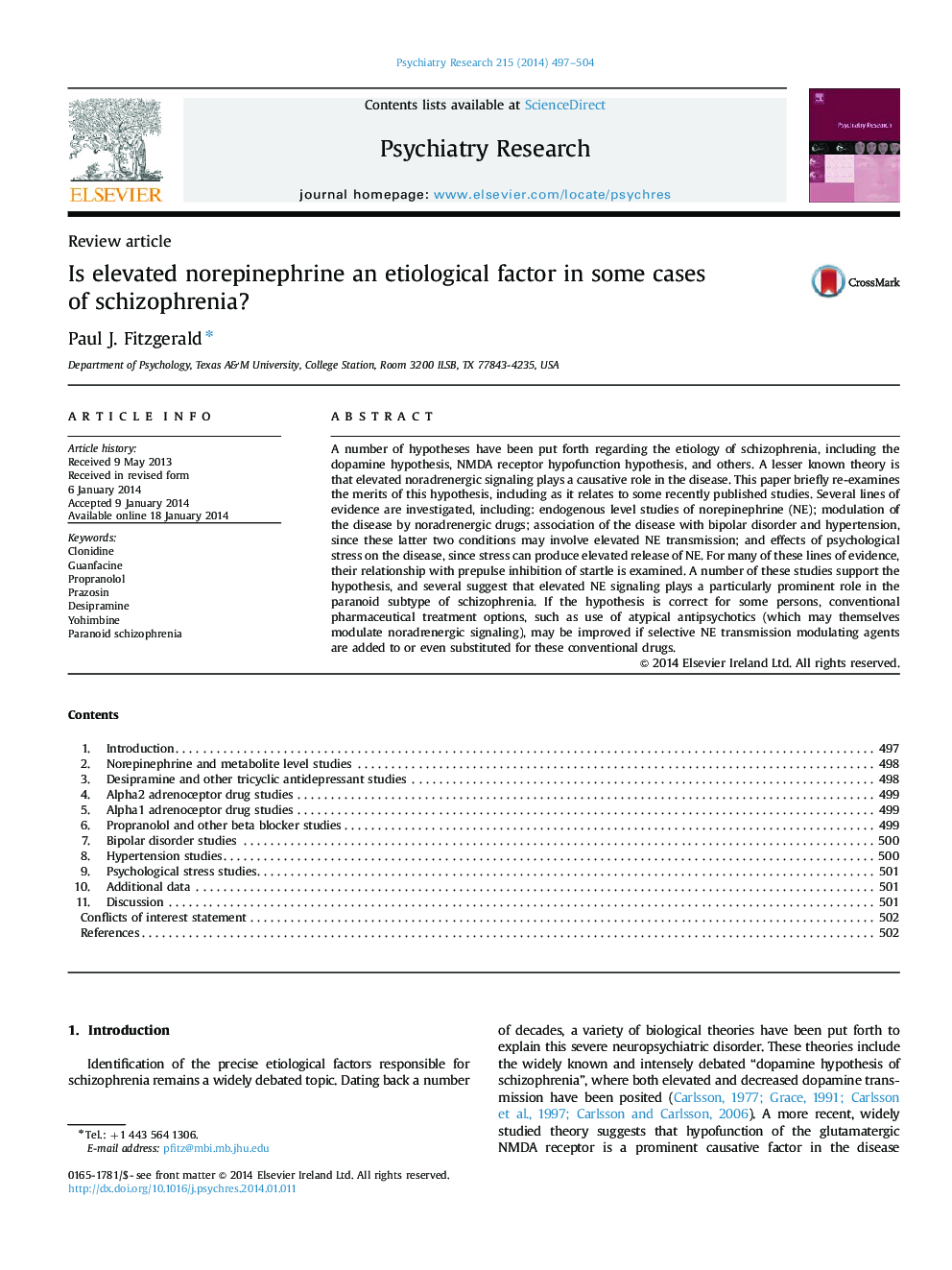| کد مقاله | کد نشریه | سال انتشار | مقاله انگلیسی | نسخه تمام متن |
|---|---|---|---|---|
| 10303862 | 545635 | 2014 | 8 صفحه PDF | دانلود رایگان |
عنوان انگلیسی مقاله ISI
Is elevated norepinephrine an etiological factor in some cases of schizophrenia?
ترجمه فارسی عنوان
آیا نوراپی نفرین یک عامل علت در برخی از موارد اسکیزوفرنی است؟
دانلود مقاله + سفارش ترجمه
دانلود مقاله ISI انگلیسی
رایگان برای ایرانیان
کلمات کلیدی
موضوعات مرتبط
علوم زیستی و بیوفناوری
علم عصب شناسی
روانپزشکی بیولوژیکی
چکیده انگلیسی
A number of hypotheses have been put forth regarding the etiology of schizophrenia, including the dopamine hypothesis, NMDA receptor hypofunction hypothesis, and others. A lesser known theory is that elevated noradrenergic signaling plays a causative role in the disease. This paper briefly re-examines the merits of this hypothesis, including as it relates to some recently published studies. Several lines of evidence are investigated, including: endogenous level studies of norepinephrine (NE); modulation of the disease by noradrenergic drugs; association of the disease with bipolar disorder and hypertension, since these latter two conditions may involve elevated NE transmission; and effects of psychological stress on the disease, since stress can produce elevated release of NE. For many of these lines of evidence, their relationship with prepulse inhibition of startle is examined. A number of these studies support the hypothesis, and several suggest that elevated NE signaling plays a particularly prominent role in the paranoid subtype of schizophrenia. If the hypothesis is correct for some persons, conventional pharmaceutical treatment options, such as use of atypical antipsychotics (which may themselves modulate noradrenergic signaling), may be improved if selective NE transmission modulating agents are added to or even substituted for these conventional drugs.
ناشر
Database: Elsevier - ScienceDirect (ساینس دایرکت)
Journal: Psychiatry Research - Volume 215, Issue 3, 30 March 2014, Pages 497-504
Journal: Psychiatry Research - Volume 215, Issue 3, 30 March 2014, Pages 497-504
نویسندگان
Paul J. Fitzgerald,
